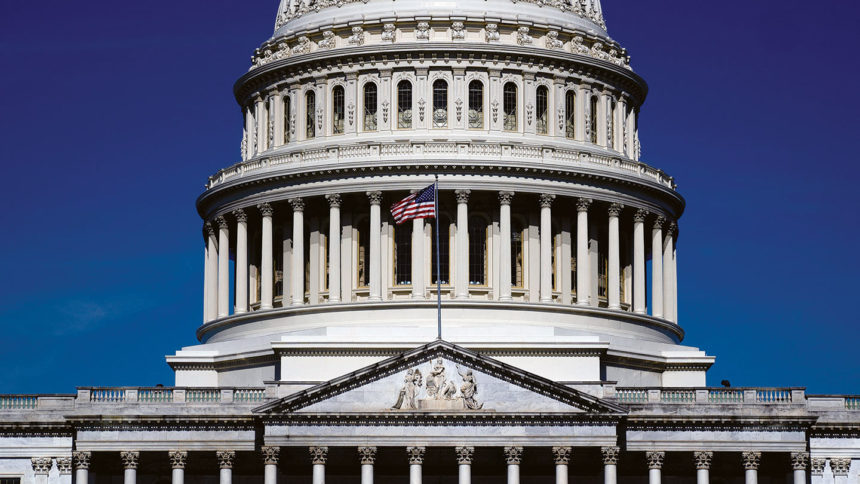
Two key bills that would allow nursing homes more flexibility to train certified nursing assistants onsite and extend telehealth access through 2026 cleared a major hurdle at a markup session before the US House Ways and Means Committee Wednesday.
Markup is the final stage for deliberations and amendments before a committee sends a bill for consideration to the full chamber. Both bills — the Ensuring Seniors’ Access to Quality Care Act and the Preserving Telehealth, Hospital, and Ambulance Access Act — advanced through that committee process Wednesday.
If passed into law, the Ensuring Seniors’ Access to Quality Care Act would permit onsite CNA training programs to automatically continue operating when a facility receives deficiencies not directly related to resident care.
Under current law, enough of such deficiencies result in a mandatory suspension of onsite CNA training programs.
Currently, facilities can apply for a waiver to continue their in-house training programs after a lockout for a violation, but that process is not well utilized according to Patrick Dumas, staff director for the Ways and Means Health Subcommittee. As many as 52% of facilities that would be eligible for this waiver have not applied, he told the committee.
The training program bill passed through the committee 25-18. The vote was split along partisan lines, with Republican members of the committee voting in favor.
Controversy over lockout bill
Increasing the availability of CNA training programs comes as welcome news to providers faced with both a workforce shortage and the new federal staffing mandate.
“We commend the members of the committee for answering the call to support direct care professionals and nursing homes as they work diligently to strengthen the long-term care workforce,” said Clif Porter, senior vice president of government relations at the American Health Care Association. “In the wake of the unfunded federal staffing mandate, legislation like this is a welcome, stark contrast that helps bolster our workforce to meet future demands and directly improves access to care for our nation’s seniors.”
Nonprofit leaders were equally supportive of the bill and its timing.
“The need for this modification is particularly urgent now,” noted Katie Smith Sloan, president and CEO of LeadingAge. “By our calculations, at least 78,000 additional full-time nurse aides will be needed in nursing homes nationwide to comply with the new requirements. LeadingAge is leveraging every possible policy opportunity to build the long-term care workforce.”
Policymakers in support of the bill echoed the providers’ concerns.
“This markup couldn’t come at a better time now that the disastrous nursing home minimum staffing rule has been finalized,” said Rep. Ron Estes (R-KS), who introduced the bill. “While I disagree with this rule, my bill will help nursing homes comply by allowing them to train the necessary staff to meet the rule’s requirement.”
Some on the committee dissented loudly, however, including Rep. Judy Chu (D-CA).
“This exception fails to account for so many practices that can harm patients and workers,” Chu said — pointing out examples of facilities with a history of falsified records, of repeated failures to report resident abuse or that retaliate against workers for reporting problems with care, which would not be excluded from running training programs under the bill.
The legislation has a companion in the Senate that has been referred to the Finance committee, but it has yet to have a hearing or get a mark-up.
Telehealth extension also advances
The Preserving Telehealth, Hospital, and Ambulance Access Act also came before the committee Wednesday. That bill aims to protect expanded access to telehealth that is currently set to expire at the end of this year — extending it through the end of 2026.
That measure also passed through the committee and was reported to the house for a vote. Unlike the lockout bill, the telehealth bill received bipartisan support and was approved without a single vote against.
Providers vocally supported this bill’s progress as well.
“This legislation is a realistic response to both providers’ and consumers’ needs. Telehealth is the new normal approach for delivering so much of care today,” Sloan said Wednesday, adding that her group will continue to push to make the flexibilities permanent.
While emphasizing that a permanent designation would be preferable, the two-year extension would be a welcome development, said Kyle Zebley, senior vice president of public policy at the American Telemedicine Association.
“This is a clear sign that our bipartisan telehealth supporters are at work, determined not to leave the American people without access to safe, effective, quality healthcare where and when they need it,” Zebley said in a statement provided to McKnight’s Long-Term Care News Wednesday.




